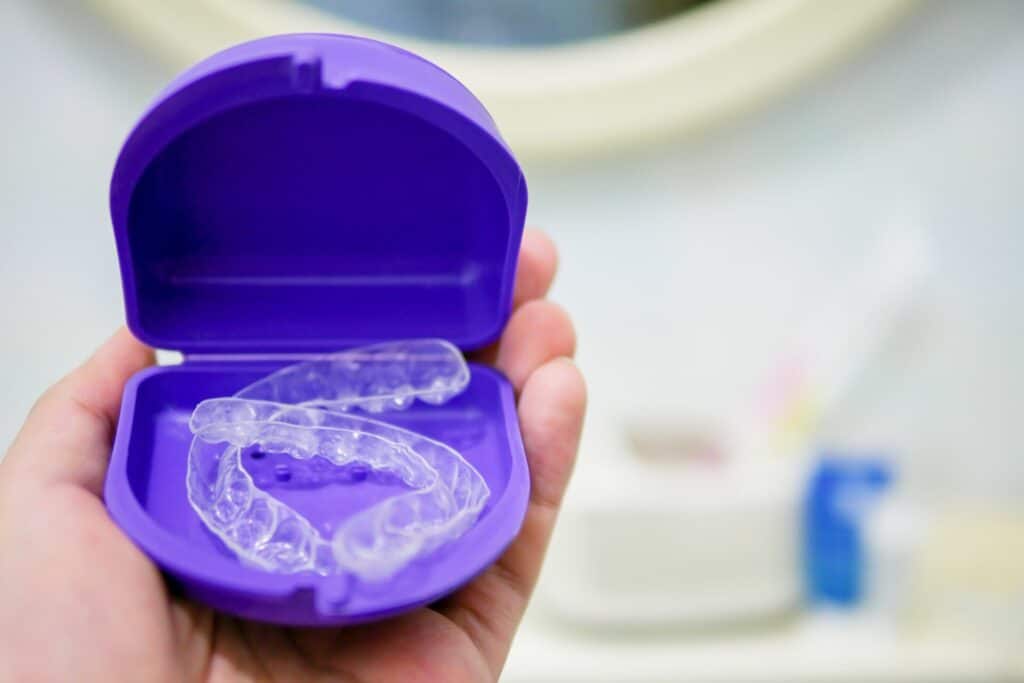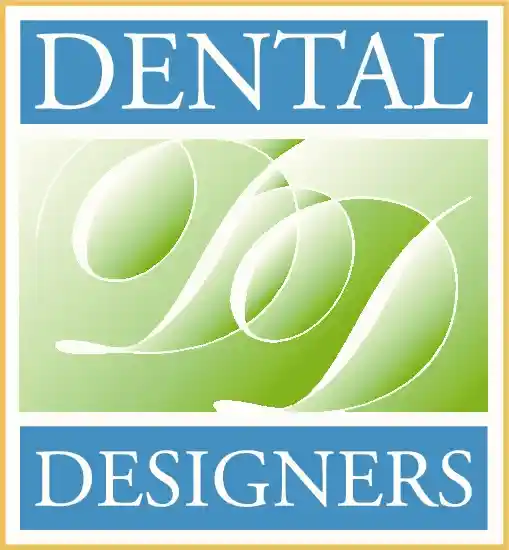Introduction
Teeth grinding, medically known as bruxism, is a common dental issue that affects many individuals. If you reside in Rockford, seeking advice from a local dentist can provide you with tailored strategies to manage and prevent teeth grinding. This article will delve into the causes, consequences, and actionable recommendations offered by a dentist in Rockford to help you stop grinding your teeth.

Recommendations from Local Dentists in Rockford:
Custom Mouthguards:
Custom-fitted nightguards or splints are specialized dental devices created to address the impact of teeth grinding. These appliances are meticulously crafted to fit your unique dental anatomy. They work by forming a protective barrier between your upper and lower teeth, mitigating the direct contact and friction that occurs during grinding.
Dentists create custom mouthguards by taking impressions of teeth and creating molds that conform to teeth and gum contours. The resulting appliance is tailored to your mouth’s specific dimensions, ensuring a snug fit and optimal functionality.
The cushioning effect provided by these custom mouthguards is crucial in absorbing the considerable forces generated when grinding occurs. Instead of your teeth bearing the brunt of these forces, the mouthguard absorbs and disperses the pressure. This helps to prevent the gradual wearing down of enamel, which can lead to tooth sensitivity, pain, and other dental issues.
Benefits:
- Personalized Comfort: Custom mouthguards offer comfort that store-bought options cannot match. They are designed to fit your mouth precisely, eliminating discomfort or interference with your sleep patterns.
- Effective Protection: The primary goal of custom mouthguards is to protect your teeth from the damaging effects of grinding. Creating a physical barrier reduces the direct impact on your tooth surfaces, preventing enamel erosion and associated dental problems.
- Muscle Tension Reduction: Custom mouthguards can help alleviate muscle tension beyond safeguarding your teeth. Cushioning reduces jaw muscle strain, reducing discomfort.
- Durability: Custom mouthguards made from durable materials for extended use. This durability ensures that your mouthguard remains effective and provides consistent protection.
- Long-Term Savings: While custom mouthguards might have a higher upfront cost than generic options, their effectiveness and durability mean they can prevent more costly dental treatments in the long run. By preserving your natural teeth, you avoid the need for extensive restorative procedures.
- Professional Guidance: Obtaining a custom mouthguard involves professional guidance from a dentist. They will assess your grinding patterns, dental health, and other relevant factors to ensure the mouthguard meets your unique needs.
- Improved Sleep Quality: With a custom mouthguard in place, you and your sleep partner can enjoy quieter nights. The device dampens the noise generated by grinding, reducing sleep disturbances.
Stress Management Techniques
Stress management techniques are strategies designed to help individuals effectively cope with and reduce stress. These techniques are crucial in addressing one of the primary triggers for teeth grinding—stress and anxiety. When stress levels escalate, the body’s natural response can manifest as clenching and grinding of teeth, particularly during sleep.
- Deep Breathing: Deep breathing exercises activate relaxation response, reduce stress hormones, and promote calmness through deliberate inhalation and exhalation.
- Meditation: Meditation helps quiet thoughts, alleviate anxiety, and create mental space.
- Progressive Muscle Relaxation: This technique involves sequentially tensing and then relaxing different muscle groups in the body. The process helps release physical tension, which can accumulate due to stress. It fosters a heightened awareness of muscle tension, making it easier to consciously relax muscles even during times of stress.
Benefits:
- Reduced Teeth Grinding: By adopting stress management techniques, individuals can address the root cause of teeth grinding. Lowering stress levels significantly reduces the likelihood of clenching and grinding behaviors, particularly during sleep.
- Enhanced Oral Health: Stress management improves oral health by reducing grinding and reducing issues.
- Overall Well-Being: Stress management enhances mental and emotional well-being.
- Better Sleep: Deep breathing and meditation improve sleep quality, potentially reducing grinding incidents.
- Physical Relaxation: Progressive muscle relaxation reduces stress tension, minimizes bruxism impact.
- Cognitive Function: Stress reduction techniques improve cognitive function, performance, and productivity.
- Emotional Resilience: Manage stress effectively for emotional resilience and avoid harmful habits like teeth grinding.
Dietary Adjustments:
Dietary adjustments involve making conscious choices about the types of foods and beverages consumed to reduce the likelihood of teeth grinding. Certain dietary elements, such as caffeine and alcohol, can stimulate the central nervous system and exacerbate the grinding behavior. Adjusting your diet to minimize these stimulants, especially before bedtime, can contribute to reducing grinding episodes.
- Cutting Back on Caffeine and Alcohol: Caffeine and alcohol disrupt the central nervous system, disrupt sleep, and increase muscle tension.
- Balanced Diet: A balanced diet supports overall health and manages bruxism.
Benefits:
- Reduced Teeth Grinding: Adjusting your diet to limit caffeine and alcohol intake before bedtime can lead to a reduction in the stimulatory effects on the central nervous system.
- Enhanced Sleep Quality: Avoid caffeine and alcohol to improve sleep quality, manage stress, and prevent teeth grinding.
- Muscle Relaxation: A diet rich in essential nutrients, particularly magnesium and calcium, supports muscle relaxation. Relaxed muscles are less prone to the tension associated with grinding, contributing to decreased grinding episodes.
- Oral Health: A balanced diet supports overall oral health. Adequate nutrients promote strong teeth and gums, reducing the risk of dental issues that could exacerbate teeth grinding’s effects.
- Overall Well-Being: A diet that supports relaxation and quality sleep enhances overall well-being. Managing teeth grinding through dietary adjustments positively impacts physical health, mood, and daily energy levels.
- Holistic Approach: Dietary adjustments offer a proactive and holistic approach to managing teeth-grinding triggers. By addressing the root causes through lifestyle choices, you’re contributing to a comprehensive strategy for preventing bruxism.
- Positive Lifestyle Habits: Making conscious dietary choices aligns with a broader commitment to maintaining a healthy lifestyle. These choices can have far-reaching benefits beyond managing teeth grinding.
Jaw Exercises:
Jaw exercises are a series of gentle movements and stretches specifically designed to target the muscles surrounding the jaw joint. These exercises, often recommended by a dentist in Rockford, aim to alleviate muscle tension, promote relaxation, and reduce the urge to clench and grind the teeth. By incorporating these exercises into your routine, you can enhance jaw comfort and contribute to managing bruxism.
- Gentle Movements and Stretches: Jaw exercises involve movements that encourage relaxation of the jaw muscles. These movements can include slow and controlled opening and closing of the mouth, side-to-side movements, and gently massaging the jaw area with your fingertips. Stretching exercises may involve slowly opening the mouth wider than usual and holding the stretch for a few seconds.
- Prescribed by a Dentist: A Rockford dentist can provide personalized guidance on the appropriate jaw exercises for your specific situation. These exercises are tailored to your needs and take into account any existing jaw discomfort or related issues.
Benefits:
- Muscle Relaxation: Regularly practicing jaw exercises helps relax the tense muscles surrounding the jaw joint. The relaxation of these muscles reduces the strain and tension that contribute to clenching and grinding, ultimately diminishing the urge to engage in these behaviors.
- Enhanced Jaw Comfort: Alleviating muscle tension through jaw exercises contributes to enhanced jaw comfort. This can lead to reduced discomfort, pain, and stiffness often associated with bruxism.
- Reduced Grinding Tendencies: The relaxation of jaw muscles achieved through exercises can directly contribute to reducing grinding tendencies. Relaxed muscles are less likely to engage in involuntary grinding during sleep or times of stress.
- Non-Invasive Approach: Jaw exercises offer a non-invasive approach to managing bruxism. Unlike some treatments, jaw exercises do not involve medications, devices, or invasive procedures. They provide a natural way to address muscle tension.
- Accessible and Convenient: Jaw exercises can be performed in the comfort of your own home and can be seamlessly integrated into your daily routine. This accessibility makes them a practical and sustainable option for managing bruxism.
- Complementary Strategy: Jaw exercises can complement other bruxism management techniques, such as wearing a custom mouthguard or implementing stress reduction practices. Together, these approaches create a comprehensive strategy for addressing teeth grinding.
- Empowerment: Incorporating jaw exercises empowers individuals to take an active role in managing their bruxism. It provides a sense of control over the condition and the ability to contribute positively to oral health.
Bite Adjustment (Occlusal Adjustment):
An occlusal adjustment, often recommended by a dentist in Rockford, involves making precise modifications to the alignment of your teeth. This procedure aims to correct irregularities in your bite, ensuring that the upper and lower teeth come together harmoniously when you close your mouth. By achieving proper alignment, occlusal adjustment helps reduce uneven pressure on teeth, which can contribute to grinding.
- Identifying Bite Irregularities: Your dentist will carefully evaluate your bite to determine if there are any areas of misalignment or imbalanced contact between your teeth. These irregularities can create pressure points that lead to discomfort, clenching, and grinding.
- Precise Modifications: Using specialized dental tools, your dentist will make small adjustments to the surfaces of certain teeth. These adjustments are meticulously calibrated to achieve an even and balanced bite. The goal is to distribute the forces of biting and chewing more evenly across all teeth.
- Reducing Grinding for Comfort: A properly aligned bite reduces the need for your jaw muscles to compensate for irregularities. When your teeth come together naturally, there’s less need for grinding to find a comfortable resting position. This helps alleviate the muscle tension and strain associated with bruxism.
Benefits:
- Addressing Grinding: Occlusal adjustment directly addresses the underlying triggers of grinding by rectifying bite irregularities. This preventive approach reduces the need for grinding as your bite becomes more balanced and comfortable.
- Balanced Bite: Achieving a balanced bite through occlusal adjustment ensures that your teeth come together harmoniously. This balance minimizes unnecessary stress on specific teeth and the associated muscle tension.
- Muscle Comfort: A balanced bite reduces the strain on your jaw muscles, which are often overworked in individuals with irregular bites. By promoting muscle comfort, occlusal adjustment contributes to relaxation and decreased grinding tendencies.
- Preservation of Tooth Structure: Uneven pressure from an irregular bite can lead to excessive wear on certain teeth. Occlusal adjustment helps prevent premature tooth wear and enamel erosion by distributing biting forces more evenly.
- Preventing Further Complications: A properly aligned bite prevents additional oral health issues that can arise from prolonged grinding. This includes problems like TMJ disorders, cracked teeth, and gum recession.
- Enhanced Oral Function: A balanced bite not only reduces grinding but also enhances overall oral function. Chewing and biting become more efficient, which supports better digestion and oral health.
- Improved Aesthetics: Occlusal adjustment can improve the aesthetics of your smile by ensuring that your teeth are aligned properly. This contributes to a more appealing and harmonious appearance.
- Long-Term Oral Health: By addressing bite irregularities and their associated consequences, occlusal adjustment supports long-term oral health. It helps maintain the integrity of your teeth and reduces the risk of complications.
Behavioral Therapy:
Behavioral therapy is a therapeutic approach that focuses on identifying and modifying behaviors, thoughts, and emotions that contribute to specific issues. In the context of bruxism, behavioral therapists who specialize in habit reversal techniques can assist individuals in becoming more aware of their grinding behaviors and replacing them with more relaxed responses.
- Awareness Building: Behavioral therapy begins with increasing self-awareness. Individuals are guided to recognize when they are clenching or grinding their teeth, whether consciously or unconsciously. This heightened awareness is a crucial step in addressing the habit.
- Replacement Strategies: Once awareness is established, individuals learn to replace the grinding behavior with more relaxed responses. This can involve consciously relaxing the jaw, performing stress-reducing techniques, or engaging in activities that distract from the urge to grind.
- Coping Techniques: Behavioral therapists provide coping techniques that individuals can use in real-time situations. These techniques aim to interrupt the automatic response of grinding and replace it with a more constructive and relaxed behavior.
Benefits:
- Psychological Component: Behavioral therapy addresses the psychological aspect of bruxism, which is often influenced by stress, anxiety, and other emotional factors. By modifying behaviors and responses, individuals can break the cycle of grinding triggered by psychological triggers.
- Holistic Approach: Behavioral therapy complements physical interventions such as wearing a mouthguard or addressing bite irregularities. Holistic approach addresses physical, psychological aspects of bruxism.
- Long-Term Management: Behavioral therapy helps individuals manage stress, replace harmful behaviors, and prevent long-term grinding.
- Enhanced Self-Control: Behavioral therapy empowers individuals to take control of their habits. It provides practical tools to manage and redirect behaviors, fostering a sense of agency and control over bruxism.
- Personalized Approach: Behavioral therapy is tailored to each individual’s unique circumstances and triggers. Therapists work collaboratively to develop strategies that align with the individual’s specific needs and challenges.
- Reduced Physical Impacts: By replacing grinding behaviors with relaxed responses, individuals can significantly reduce the physical impacts of bruxism, such as muscle tension, enamel erosion, and other dental issues.
- Improvement in Quality of Life: Successfully managing bruxism through behavioral therapy can lead to an improved overall quality of life. Reduction in grinding-related discomfort and pain positively influences daily well-being.
- Empowerment: Individuals who engage in behavioral therapy gain a greater sense of control over their condition. They learn skills that can be applied not only to bruxism but also to other situations where behavior modification is desired.
Conclusion
Addressing teeth grinding, or bruxism, requires a holistic approach that considers both physical and psychological factors. Consulting a dentist in Rockford offers personalized recommendations for effective management. Strategies include wearing custom mouthguards to protect teeth from grinding forces, practicing stress reduction techniques like deep breathing and meditation, making dietary adjustments to reduce stimulants like caffeine and alcohol, engaging in jaw exercises to promote muscle relaxation, improving sleep hygiene for better rest, undergoing bite adjustment to achieve proper alignment and reduce grinding, and considering behavioral therapy to replace grinding behaviors with relaxed responses.
Combining these approaches forms a comprehensive plan that targets various aspects of bruxism. By addressing triggers, managing stress, and adopting healthier behaviors, individuals can maintain oral health, enhance relaxation, and improve overall well-being. Consulting a dentist in Rockford ensures expert guidance tailored to your specific needs, ultimately helping you manage bruxism and enjoy a healthier, pain-free smile.






